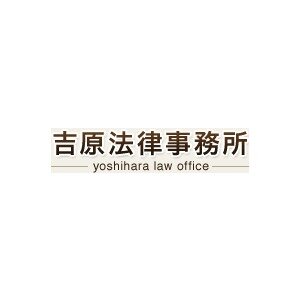Best Inheritance Law Lawyers in Sapporo
Share your needs with us, get contacted by law firms.
Free. Takes 2 min.
List of the best lawyers in Sapporo, Japan
1. About Inheritance Law in Sapporo, Japan
Inheritance law in Sapporo follows national Japanese rules, primarily governed by the Civil Code of Japan (民法). Local procedures for probate are handled through the Sapporo Family Court and the Legal Affairs Bureau (法務局). Residents of Sapporo must navigate both national law and local administrative processes to settle estates.
Key areas include will validation, estate division among heirs, and resolution of debts and assets. When real estate is involved in Sapporo or nearby areas, owners and heirs must consider registered land, municipal records, and property taxes. Practical steps often involve documenting heirs, proving the will, and filing probate petitions with the appropriate court.
Understanding how assets are shared, especially when real estate in Sapporo or other parts of Hokkaido is involved, is essential. A well drafted will and informed decisions about debt responsibility can prevent lengthy disputes among relatives. For many residents, timely planning reduces the risk of protracted litigation in the courts.
Note: Inheritance matters can trigger both civil and tax considerations. The next sections outline situations where legal help is typically needed, local legal frameworks, and practical steps to take in Sapporo.
“Probate in Japan commonly involves court approval of will validity, estate division among heirs, and, for larger estates, potential inheritance tax considerations.” - Source: Courts and National Tax Authority guidance
Civil Code and Inheritance provisions (elaws.e-gov.go.jp) provide the official text of inheritance rules and recent amendments.
National Tax Agency (nta.go.jp) offers guidance on inheritance tax obligations and filing requirements.
2. Why You May Need a Lawyer
In Sapporo, a specialized attorney can help when the estate involves complex assets, multiple heirs, or contested wills. Below are concrete, real-world scenarios common to the region where legal counsel is advisable.
- Disputed real estate in Sapporo City - Three siblings co-own a home in Chuo Ward, Sapporo. They disagree on whether to sell, how to divide proceeds, and who pays ongoing taxes. A lawyer helps with mediating a division plan and preparing a court-ordered settlement if needed.
- Ambiguous or contested will - A decedent left a handwritten will with unclear signatures. Heirs in Sapporo seek to confirm validity and interpret clauses affecting a condo near Susukino. Legal counsel can arrange expert testimony and navigate formal validation procedures.
- Large estate triggering inheritance tax - An estate includes several properties and financial assets in Hokkaido. The heirs require tax planning and accurate filing to minimize liability while complying with the Inheritance Tax Act.
- Debt exposure and limited liability - Heirs worry about potential debts exceeding assets. A lawyer can explain the options of pure inheritance, limited/expressed acceptance, or formal debt management strategies.
- Guardianship and asset management for minors - A parent’s estate includes funds intended for a minor heir. Legal counsel helps establish guardianship and protective arrangements within the probate process.
- Non-resident or foreign assets - An heir living abroad inherits property in Sapporo. A lawyer coordinates cross-border issues, documentation, and foreign asset reporting requirements.
3. Local Laws Overview
The local landscape in Sapporo is shaped by national statutes and how they are applied by local authorities and courts. The following laws and regulations are central to inheritance matters in Sapporo and across Japan.
- Civil Code of Japan (民法) - Inheritance provisions govern how property is inherited, who qualifies as an heir, and how estates are divided. The Civil Code has been amended to modernize rules around wills, spousal rights, and inheritance shares. The 2018 reform introduced the spousal right of residence and other changes, with phased effective dates starting in 2019.
- 民法の一部を改正する法律 (Law on partial amendments to the Civil Code), 2018 - This act modernized various inheritance provisions, including the introduction of new spousal protection mechanisms. Effective dates varied by provision, with many changes taking effect on 2019-01-01 and later for related rules. See elaws for the official text and dates.
- Inheritance Tax Act (相続税法) - Governs how inheritance tax is assessed and collected. Administered by the National Tax Agency (NTA). Inheritance tax applies to specific thresholds and rates, and the act has undergone revisions affecting exemptions and rates over time.
- Family Registry Act (戸籍法) - Used to determine legal heirs and prepare necessary juri documents (heirs’ certificates, family registers) required in probate. The act supports the practical steps of proving succession in courts and for official registrations.
elaws.e-gov.go.jp provides official texts and amendment dates for these statutes. National Tax Agency explains how inheritance tax is calculated and filed. Ministry of Justice offers general information on civil procedures and probate processes.
4. Frequently Asked Questions
What is inheritance law in Sapporo focused on?
It governs how a deceased person’s assets are distributed among heirs, how wills are validated, and how debts are settled during probate in Sapporo.
How do I start probate in Sapporo's Family Court?
Visit the Sapporo Family Court or file through the Legal Affairs Bureau to begin probate proceedings, typically by submitting death certificates, a will if present, and heir evidence.
What documents are usually required to begin an inheritance case?
Death certificate, family register or proof of heirs, will if any, property titles, debt records, and identification documents for all involved heirs.
Do I need a lawyer to handle inheritance matters in Japan?
No, but a lawyer helps with complex distributions, disputed wills, multi-jurisdictional assets, and ensuring timely, accurate filings and negotiations.
What is the difference between a will and intestate succession?
A will lets a decedent designate heirs and asset distribution. Intestate succession occurs when there is no will, with distribution governed by statutory rules.
How long does probate typically take in Sapporo?
Simple estates may take 6 to 12 months; complex cases with disputes or cross-border assets can extend to 1-2 years or more depending on court workload and negotiations.
Can a will be contested in Sapporo?
Yes, beneficiaries can challenge a will on grounds such as invalid signatures, coercion, or misinterpretation of clauses. Courts review to determine validity.
Do I need to register real estate transfers with the registry after probate?
Yes, real estate transfers must be registered with the Legal Affairs Bureau and land registry after the probate decision or agreement is settled.
How is inheritance tax handled for assets located in Sapporo?
Inheritance tax applies to taxable assets, regardless of location, with deductions and rates defined by the Inheritance Tax Act. Tax returns are typically filed with the NTA.
What happens if there are debts in the estate?
Creditors must be paid from the estate before distribution. Buyers and heirs may choose acceptance, limited acceptance, or renunciation of inheritance based on the debt level.
Is there a time limit for filing a claim under the遺留分 (legal share)?
遺留分 claims must be raised within prescribed periods set by law after the decedent’s death or after the discovery of the cause of the claim. Consult a lawyer for precise timelines.
Should I consider cross-border inheritance issues if a beneficiary lives outside Japan?
Yes. Cross-border issues can complicate tax, residency, and asset transfers. A lawyer with international inheritance experience can coordinate with local experts.
5. Additional Resources
The following official resources can help you understand and navigate inheritance law in Sapporo:
- Civil Code and Inheritance provisions - Official texts and amendments are available on elaws.e-gov.go.jp. This is the primary government source for laws governing inheritance, wills, and succession.
- National Tax Agency - Inheritance Tax - Provides guidance on inheritance tax calculation, exemptions, and filing requirements.
- Ministry of Justice - Probate and civil procedures - General information about probate processes, court procedures, and how to engage legal counsel.
6. Next Steps
- Assess your situation and collect key documents (death certificate, will, property titles, debt records) within 1-2 weeks.
- Identify a licensed attorney in Sapporo who specializes in inheritance and probate within 2-3 weeks. Ask about experience with local courts and cross-border assets.
- Request a case assessment and fee estimate during an initial consultation, typically 30-60 minutes, within 1-2 weeks of choosing counsel.
- Prepare and submit initial documents to the Sapporo Family Court or Legal Affairs Bureau; ensure copies are clear and translations are available if needed.
- Develop a written plan with your lawyer outlining the step-by-step process, timelines, and expected costs for the probate and potential tax filings.
- Decide on a strategy for debt exposure, asset distribution, and potential settlement negotiations with other heirs within 4-6 weeks of engagement.
- Proceed with estate administration, including real estate registration and tax filings, under your lawyer’s guidance; monitor milestones and adjust timelines as necessary.
Lawzana helps you find the best lawyers and law firms in Sapporo through a curated and pre-screened list of qualified legal professionals. Our platform offers rankings and detailed profiles of attorneys and law firms, allowing you to compare based on practice areas, including Inheritance Law, experience, and client feedback.
Each profile includes a description of the firm's areas of practice, client reviews, team members and partners, year of establishment, spoken languages, office locations, contact information, social media presence, and any published articles or resources. Most firms on our platform speak English and are experienced in both local and international legal matters.
Get a quote from top-rated law firms in Sapporo, Japan — quickly, securely, and without unnecessary hassle.
Disclaimer:
The information provided on this page is for general informational purposes only and does not constitute legal advice. While we strive to ensure the accuracy and relevance of the content, legal information may change over time, and interpretations of the law can vary. You should always consult with a qualified legal professional for advice specific to your situation.
We disclaim all liability for actions taken or not taken based on the content of this page. If you believe any information is incorrect or outdated, please contact us, and we will review and update it where appropriate.










